Commentary: The Paper
- Squidward walks out with a lawn chair (“Time to relax!”) and throws a bubblegum wrapper onto the walk in front of SpongeBob's house.
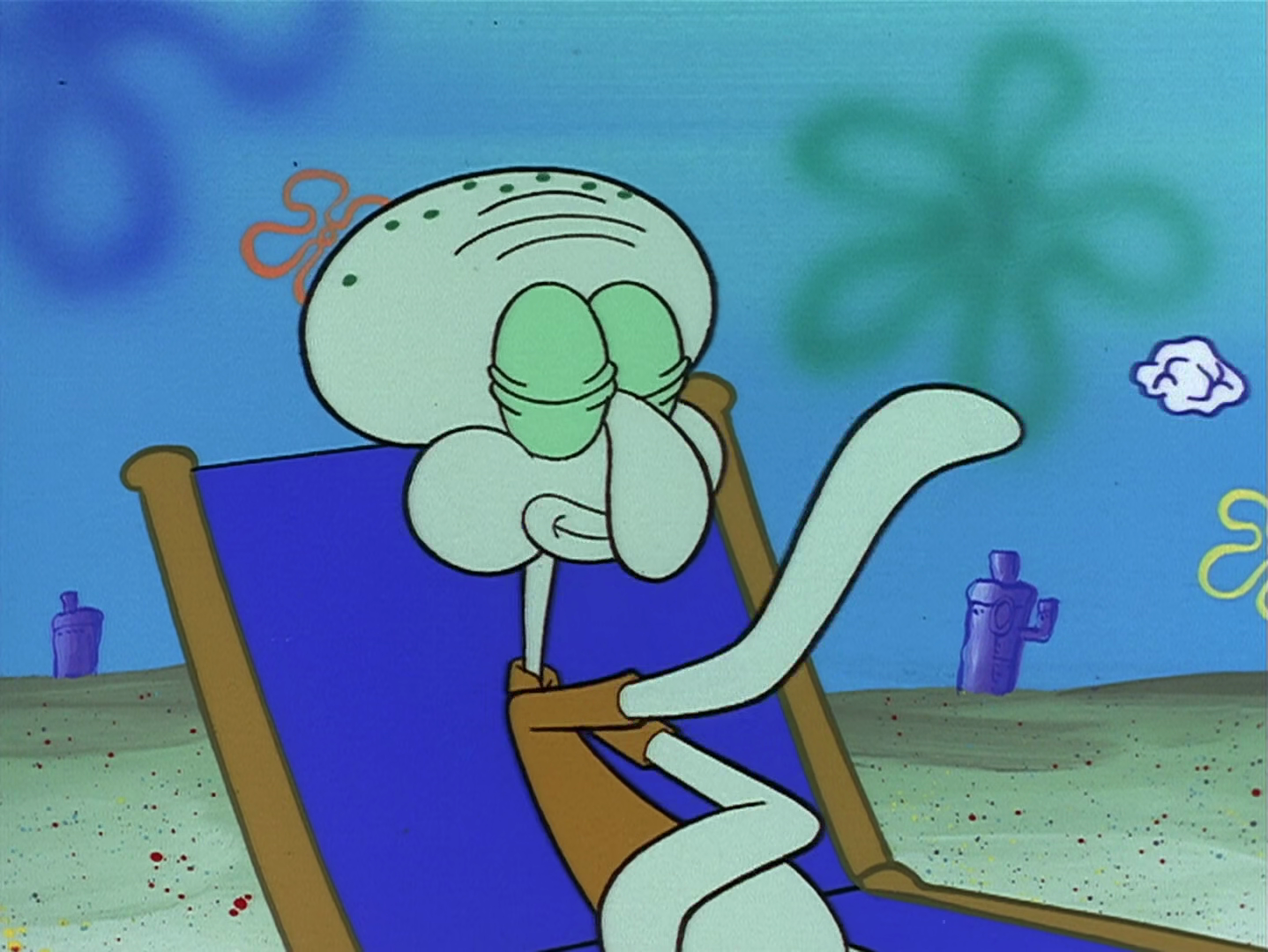 SpongeBob picks it up and asks Squidward if he wants it back.
SpongeBob picks it up and asks Squidward if he wants it back.
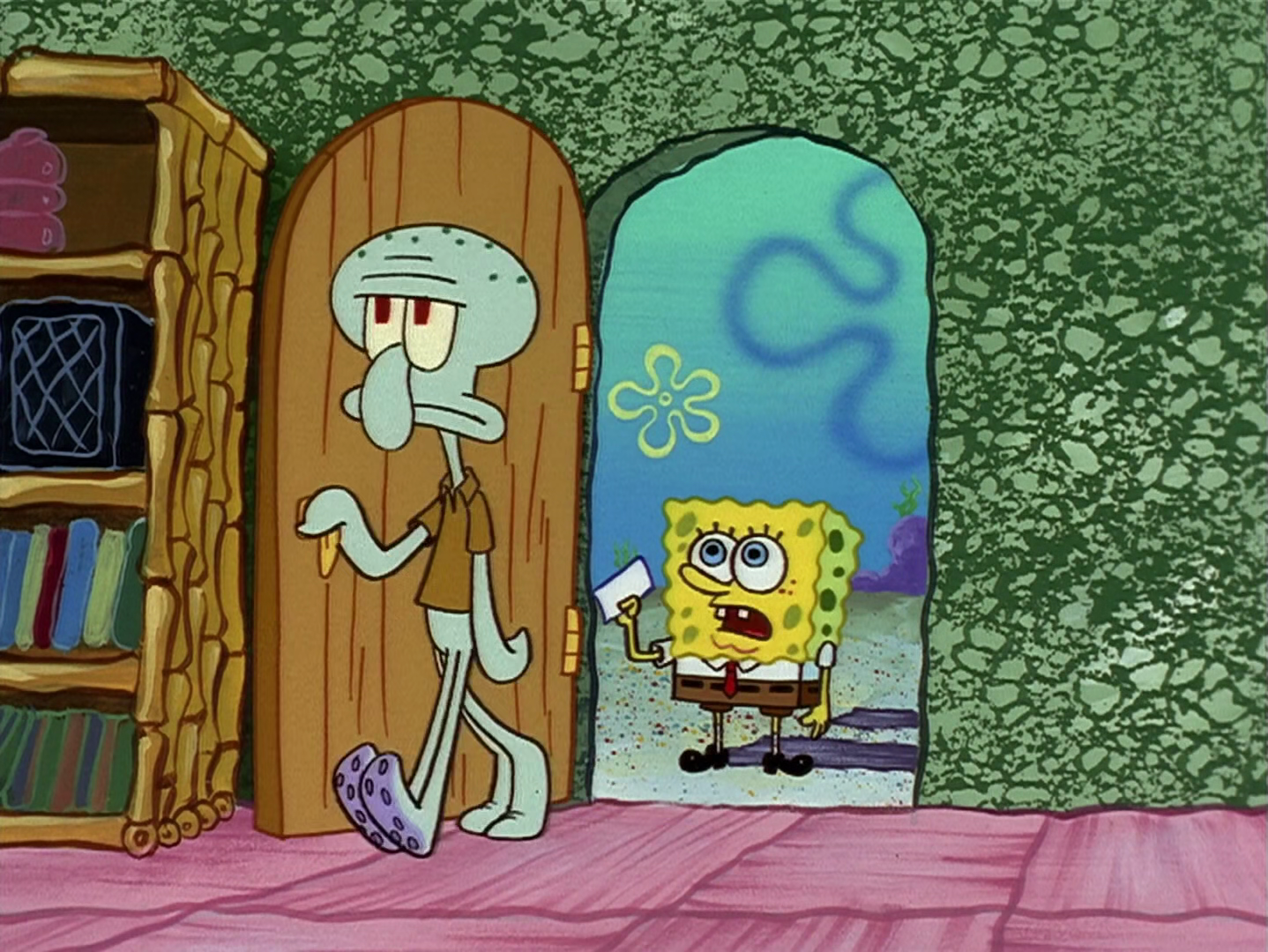
- Here the incomprehensible magic thing is what SpongeBob can do with the paper. Squidward calls the paper “only garbage,” to which SpongeBob says, “Garbage? Why, Squidward! In the right hands, this paper is a goldmine of entertainment! A spectacular afternoon of underwater fun! A treasure trove of—” Squidward confirms, over and over, that SpongeBob can keep the paper, ultimately making an Odysseus pact about it: “No matter how much I beg, and plead, and cry, DON'T give that paper back to me, EVER!”
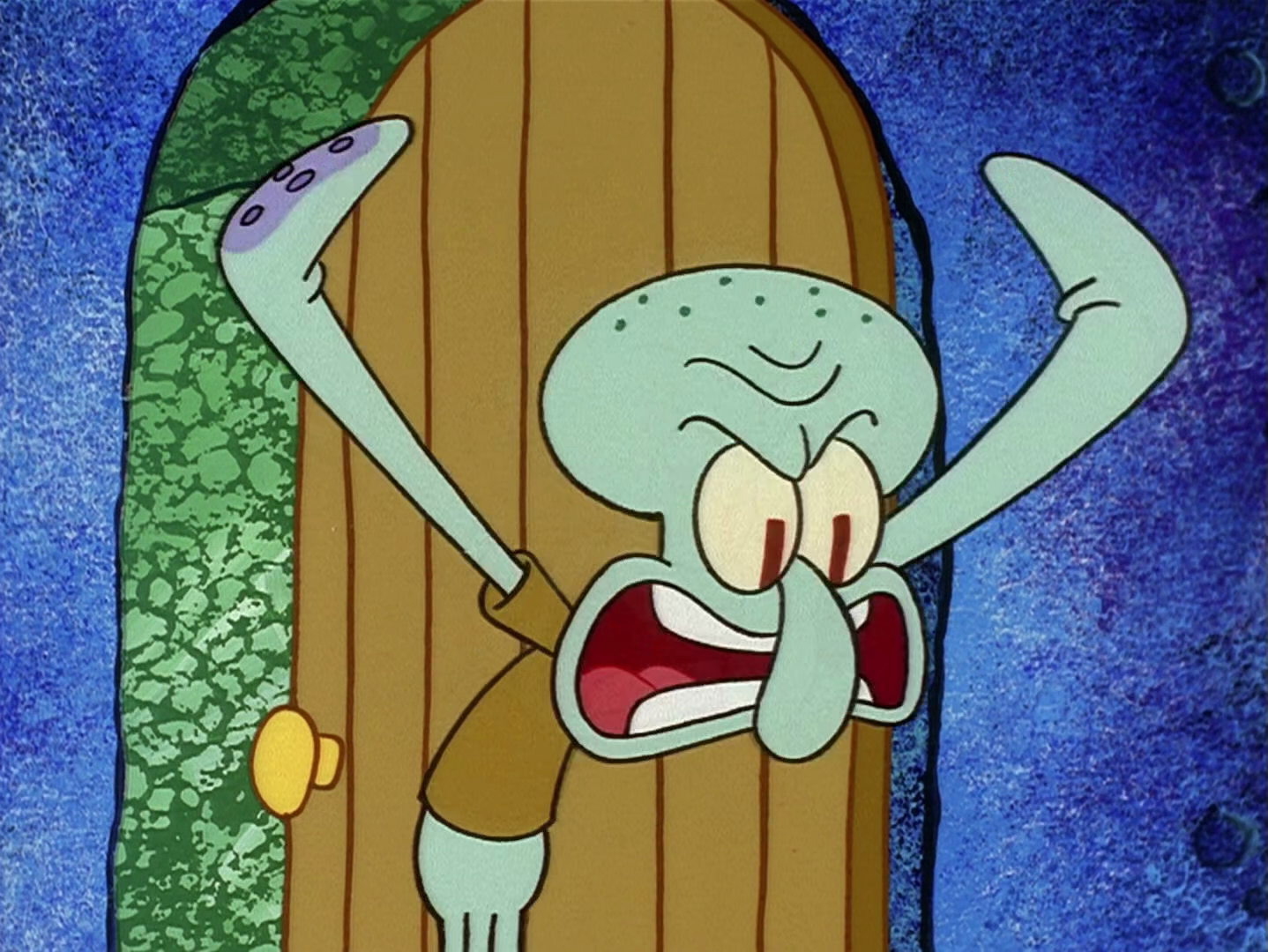
- Squidward tries to entertain himself, but keeps getting distracted by SpongeBob's laughter.
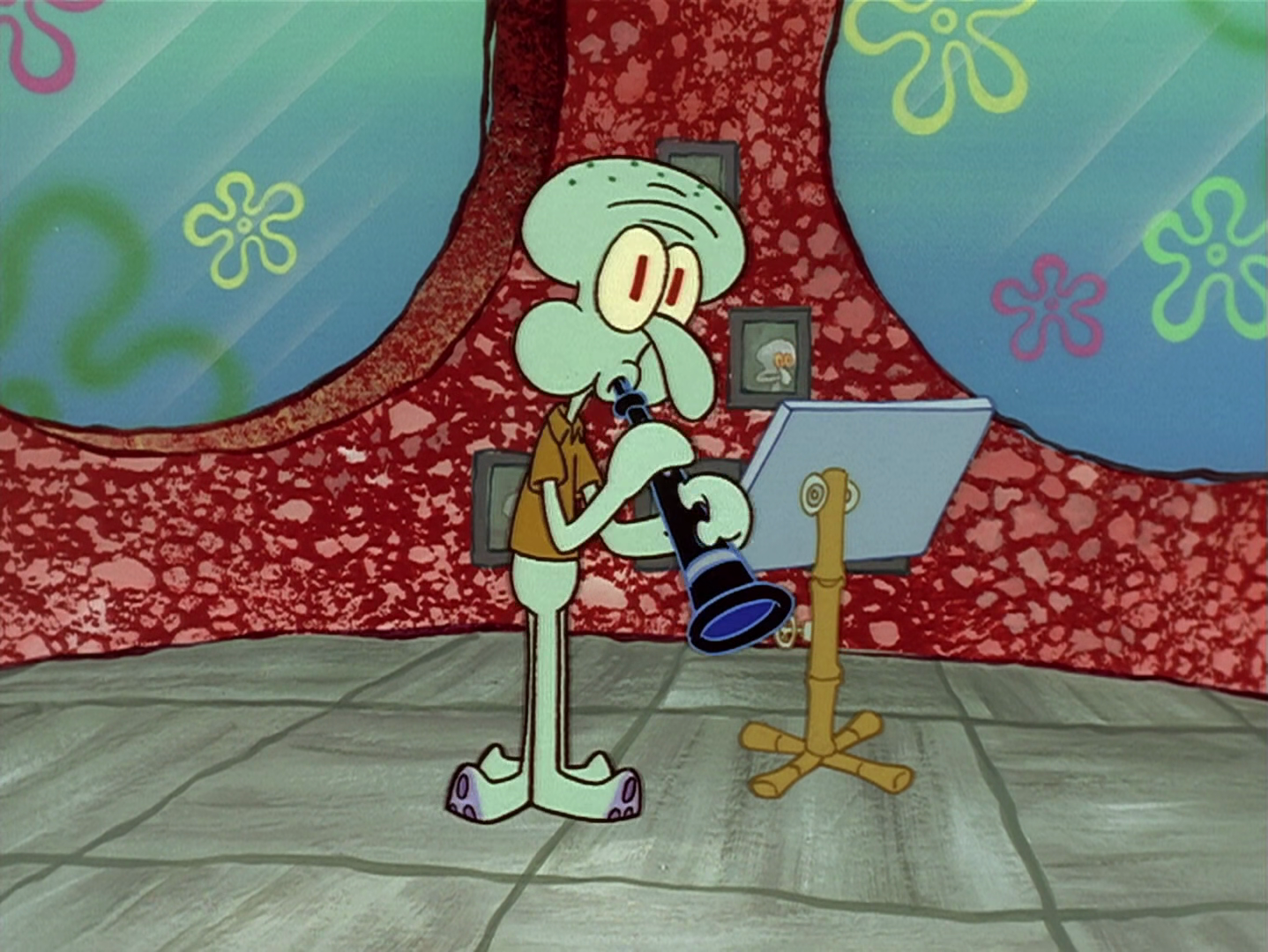 SpongeBob plays tricks with the paper, which go from impressions to impossible, magical feats. Squidward watches from behind some coral as SpongeBob plays tricks with the paper, admitting it does seem like fun.
SpongeBob plays tricks with the paper, which go from impressions to impossible, magical feats. Squidward watches from behind some coral as SpongeBob plays tricks with the paper, admitting it does seem like fun.
 Then Squidward tries to have fun himself, but SpongeBob proves that he can do better with the paper than Squidward can do with anything else, even playing music better than Squidward can on his clarinet.
Then Squidward tries to have fun himself, but SpongeBob proves that he can do better with the paper than Squidward can do with anything else, even playing music better than Squidward can on his clarinet.
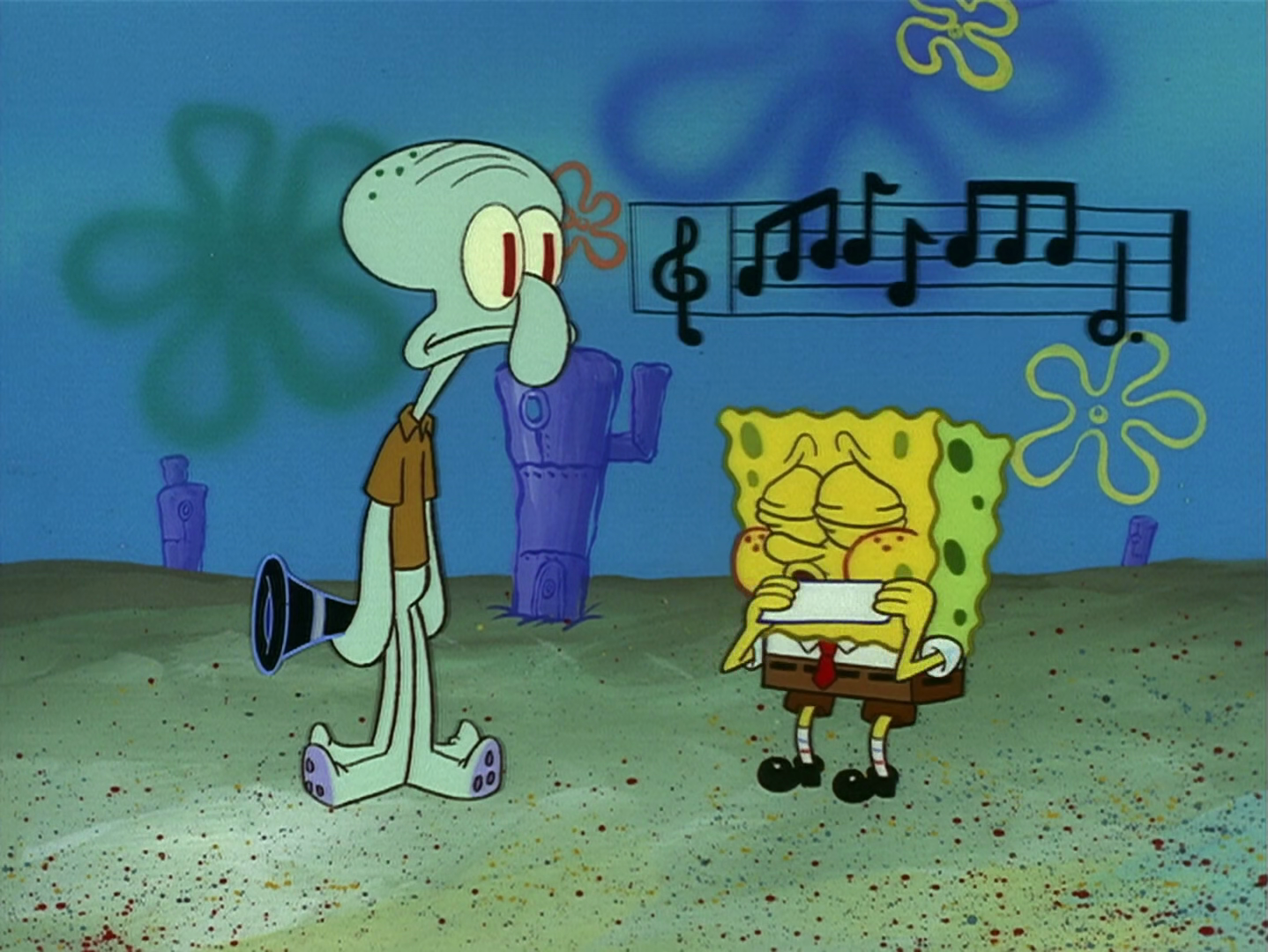
- Squidward demands the paper back. SpongeBob reminds him of the deal.
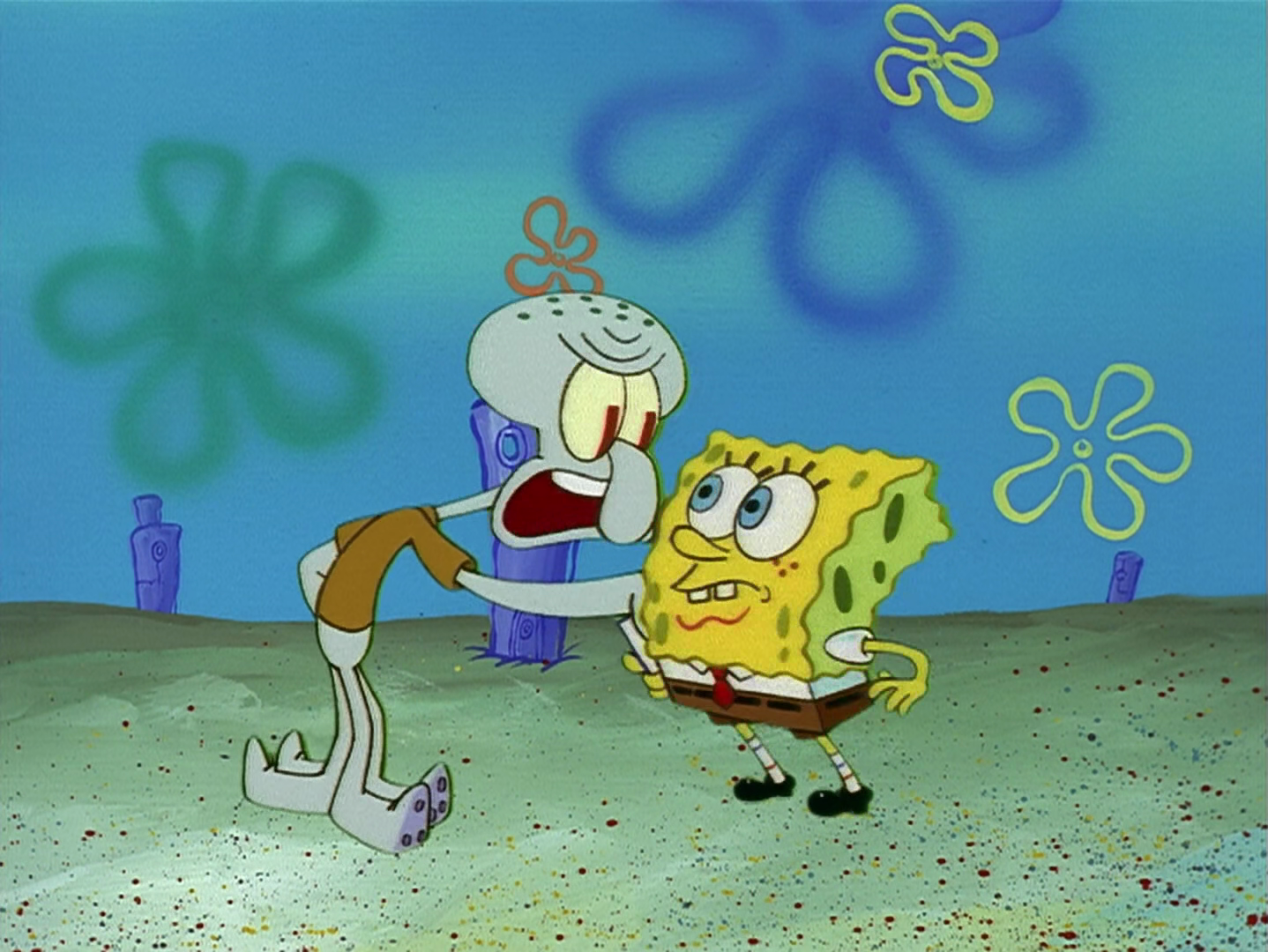 He even has flip book footage! Squidward offers to trade. He gives away all his stuff, including the shirt off his back!
He even has flip book footage! Squidward offers to trade. He gives away all his stuff, including the shirt off his back!
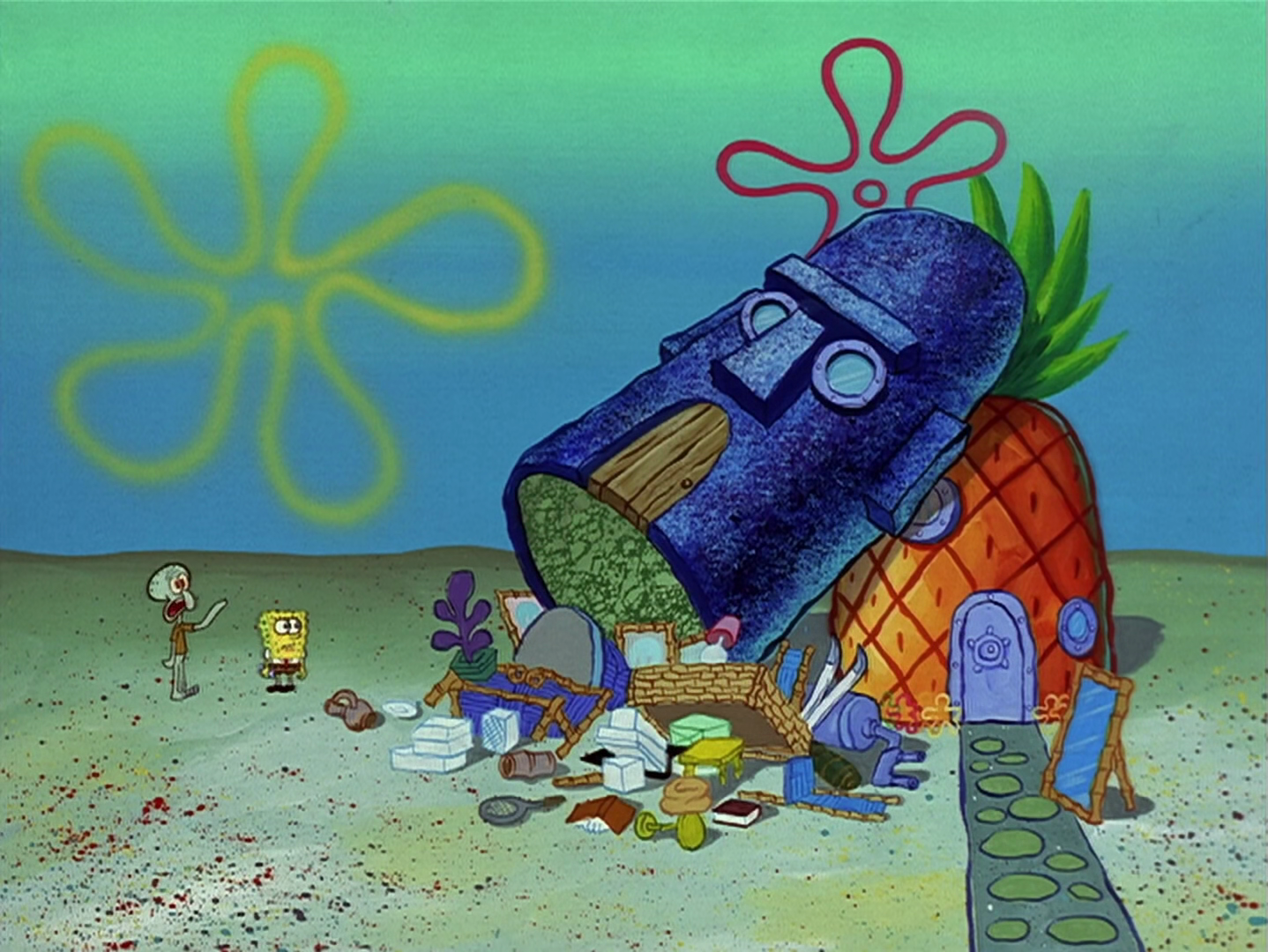
- When Squidward tries the paper, he can't do ANYTHING with it! What a chump! As a last straw, Patrick comes by, snatches the paper, and wraps up his wad of gum there. We hear the cold wind blowing, and Squidward asks “Anybody have any sunscreen?”
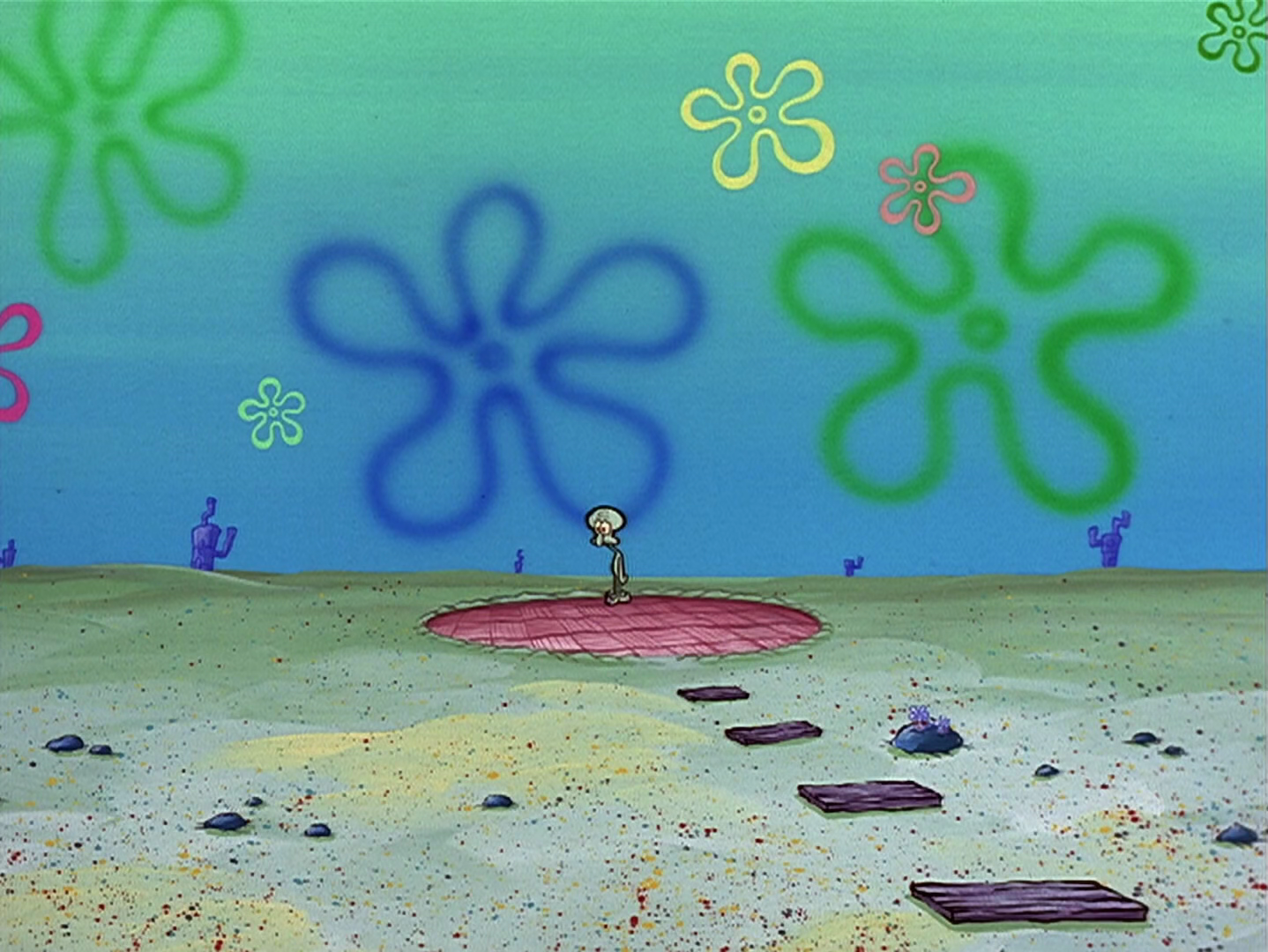
Notice what Squidward does when he tries to entertain himself with Boring Science Digest. He laughs! “Haha. Erosion. Haha. Mitosis.”
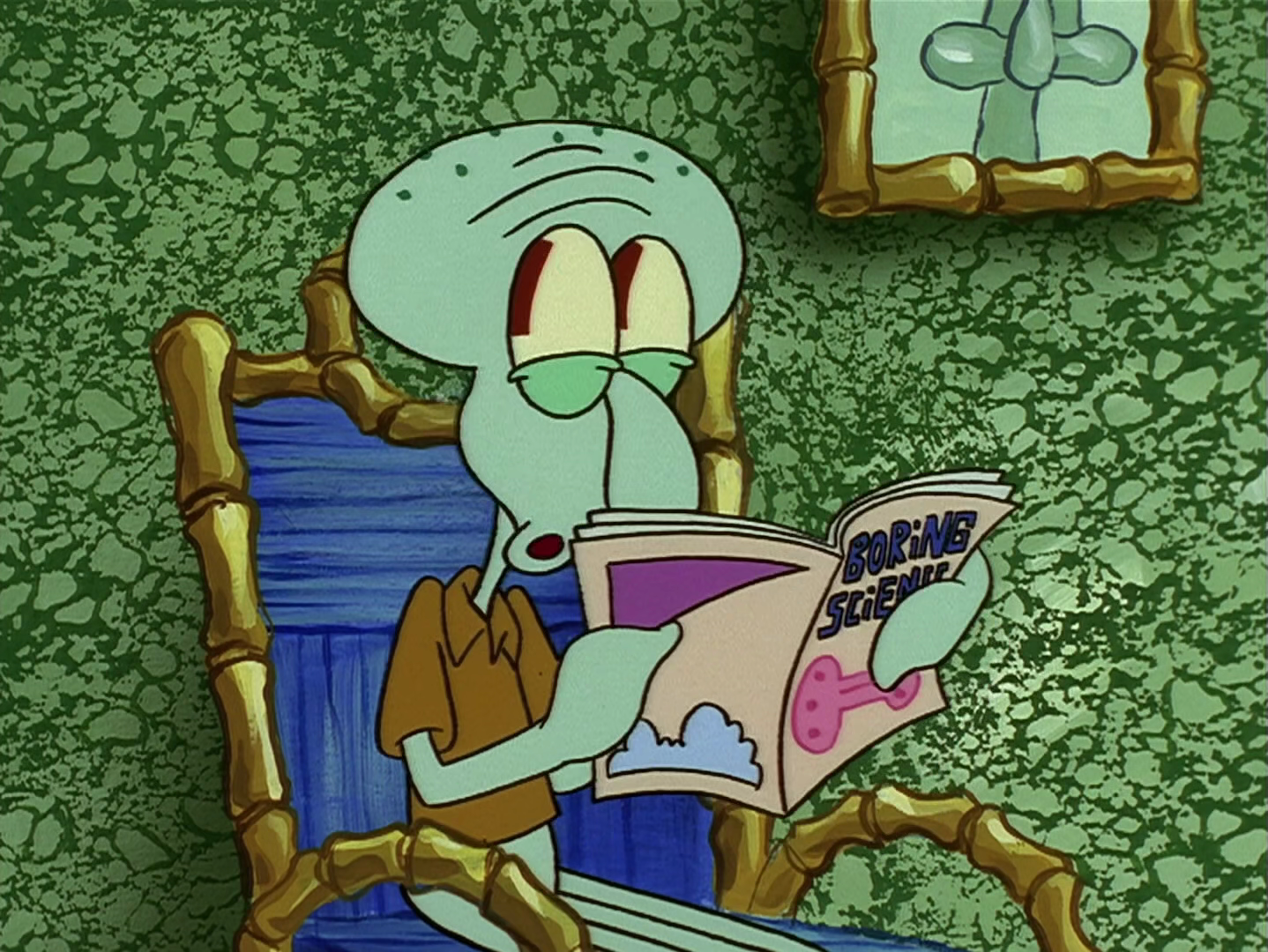 These are obviously not jokes, and he's obviously not enjoying the magazine. It's as if Squidward is performing adulthood: not simply being an adult and enjoying his own interests, but acting for an unseen audience, demonstrating outwardly the interest in whatever he thinks adults are supposed to be interested in. This is why I can't agree with the claim that Squidward is who we all become as grown-ups: rather, Squidward is a child's idea of a grown-up.
These are obviously not jokes, and he's obviously not enjoying the magazine. It's as if Squidward is performing adulthood: not simply being an adult and enjoying his own interests, but acting for an unseen audience, demonstrating outwardly the interest in whatever he thinks adults are supposed to be interested in. This is why I can't agree with the claim that Squidward is who we all become as grown-ups: rather, Squidward is a child's idea of a grown-up.
Nor can I agree that SpongeBob is who we were as kids. Passive aggression is something that develops later. When Squidward plays notes, SpongeBob applauds him, saying, “Hooray! Hooray! That was great, Squidward! All those wrong notes you played made it sound more original!” These are exactly the right words to hurt Squidward. If anybody said this, would you think it was out of innocence or out of malice? Malice, obviously! But I should qualify this point here. Of course children sometimes DO say deeply hurtful things to adults, not meaning to. Have you ever tried to draw something for a kid and made them cry because it looked wrong? Devastating. In this case, there's a disconnect between what the kid thinks they're doing, and what the adult thinks they're doing: it looks to the adult as if the kid were being a little passive-aggressive shit on purpose. I think this is what the scene captures, and it makes SpongeBob not “what we were as children” but a grown-up's idea of a child.
SpongeBob and Squidward are thus reciprocal: SpongeBob is what an annoying kid looks like to an adult, and Squidward is what a grumpy adult looks like to a kid.
Compared with “Bubblestand,” this episode has an especially long step three (Squidward becoming obsessed with secret desire for SpongeBob's object). Squidward goes and watches discreetly behind some coral—and even catches himself saying the paper looks like fun.
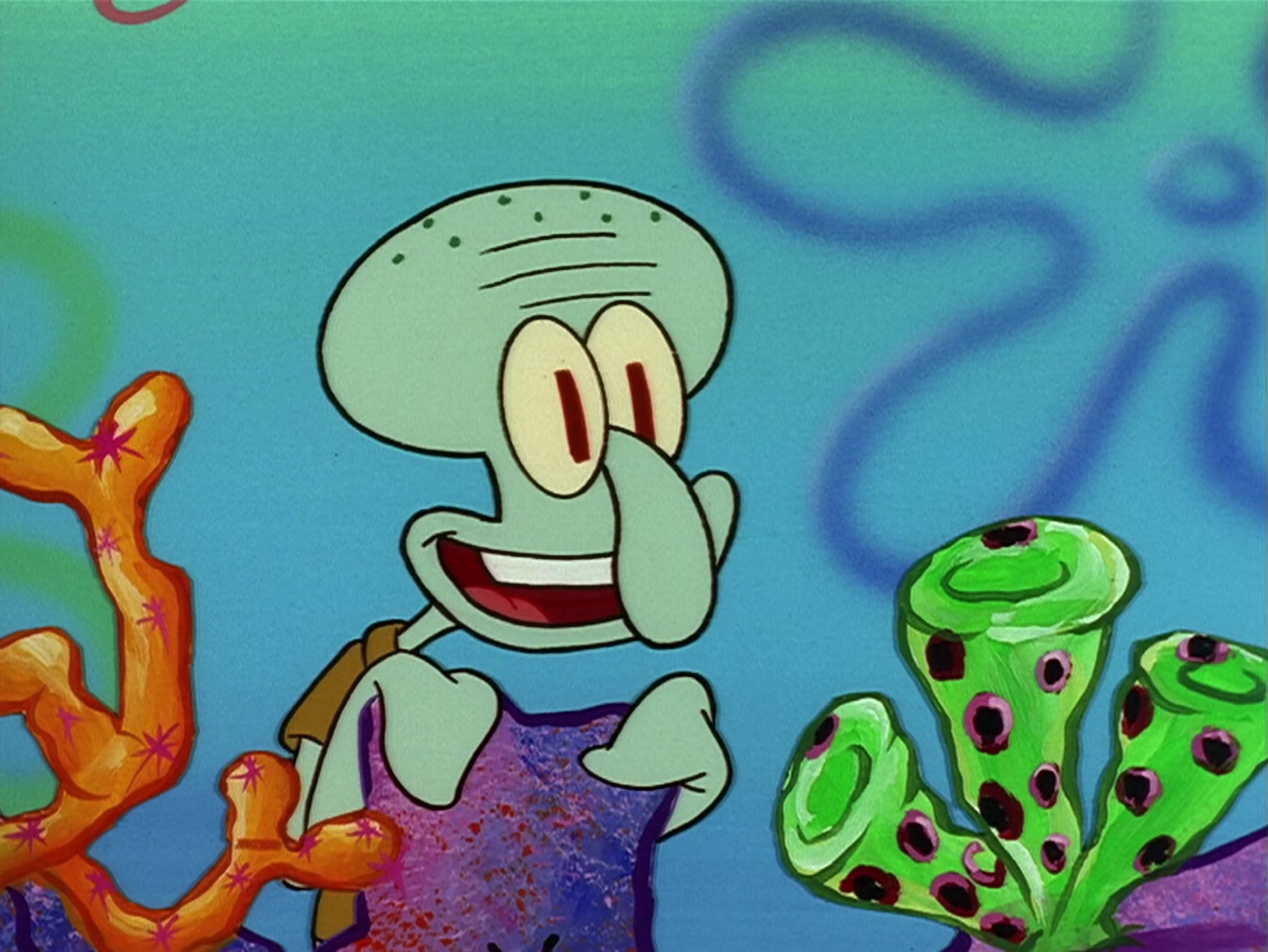 “What am I saying?” he says, shocked at himself.
“What am I saying?” he says, shocked at himself.
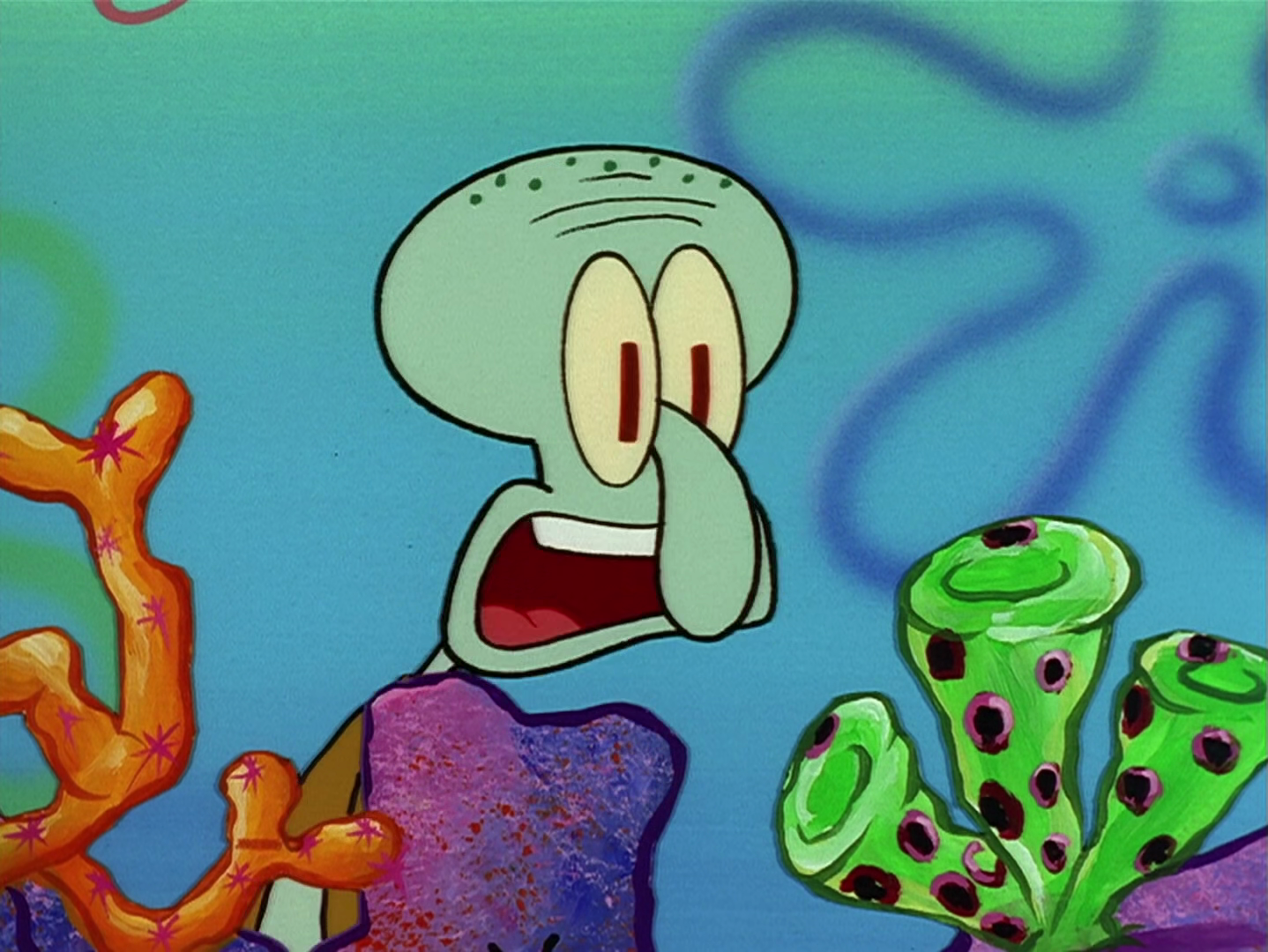
When he goes inside, the paper follows him—either physically, as in the bath...
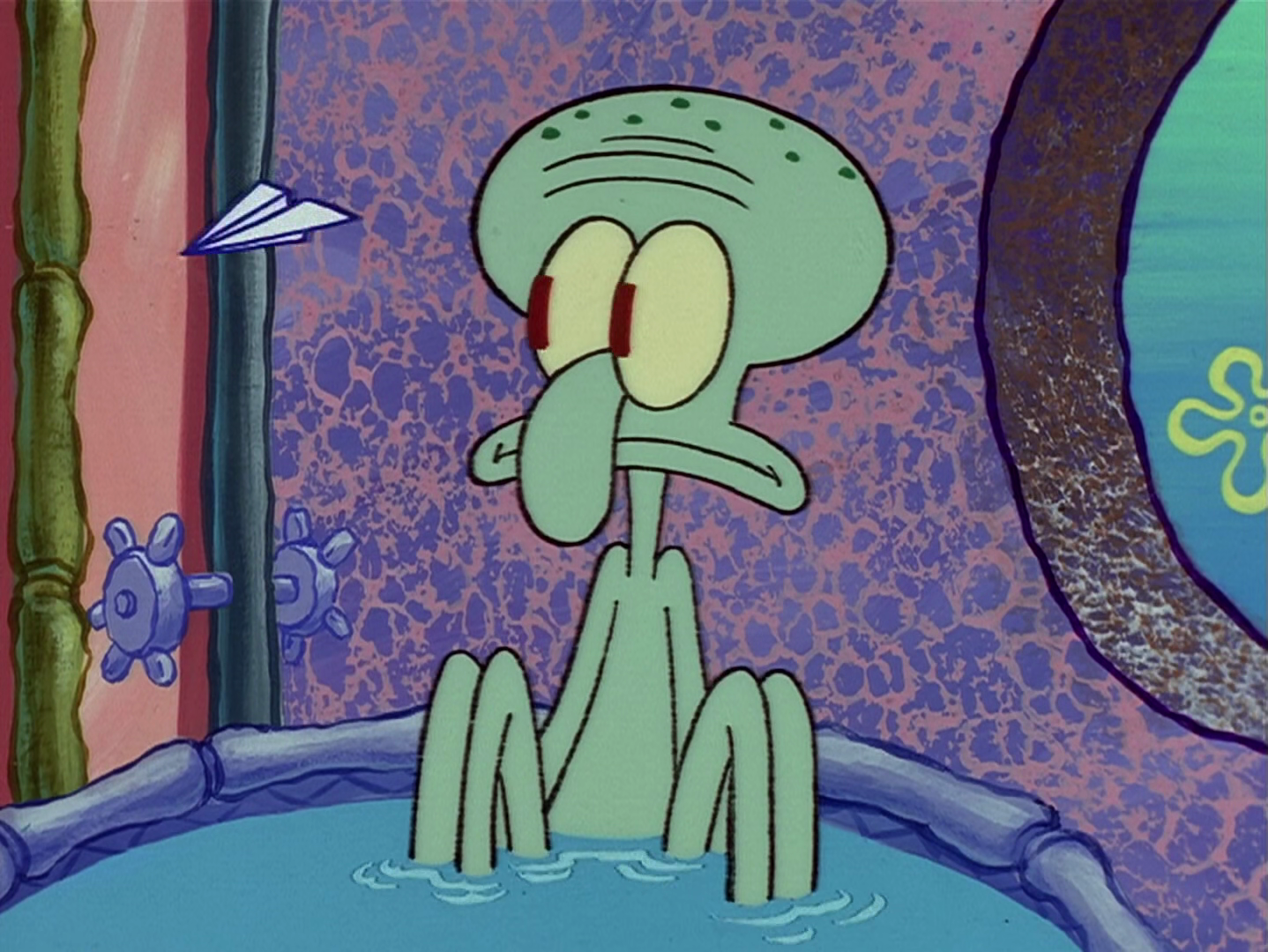 ...or psychologically, as when Squidward accidentally paints himself with the paper on his nose.
...or psychologically, as when Squidward accidentally paints himself with the paper on his nose.
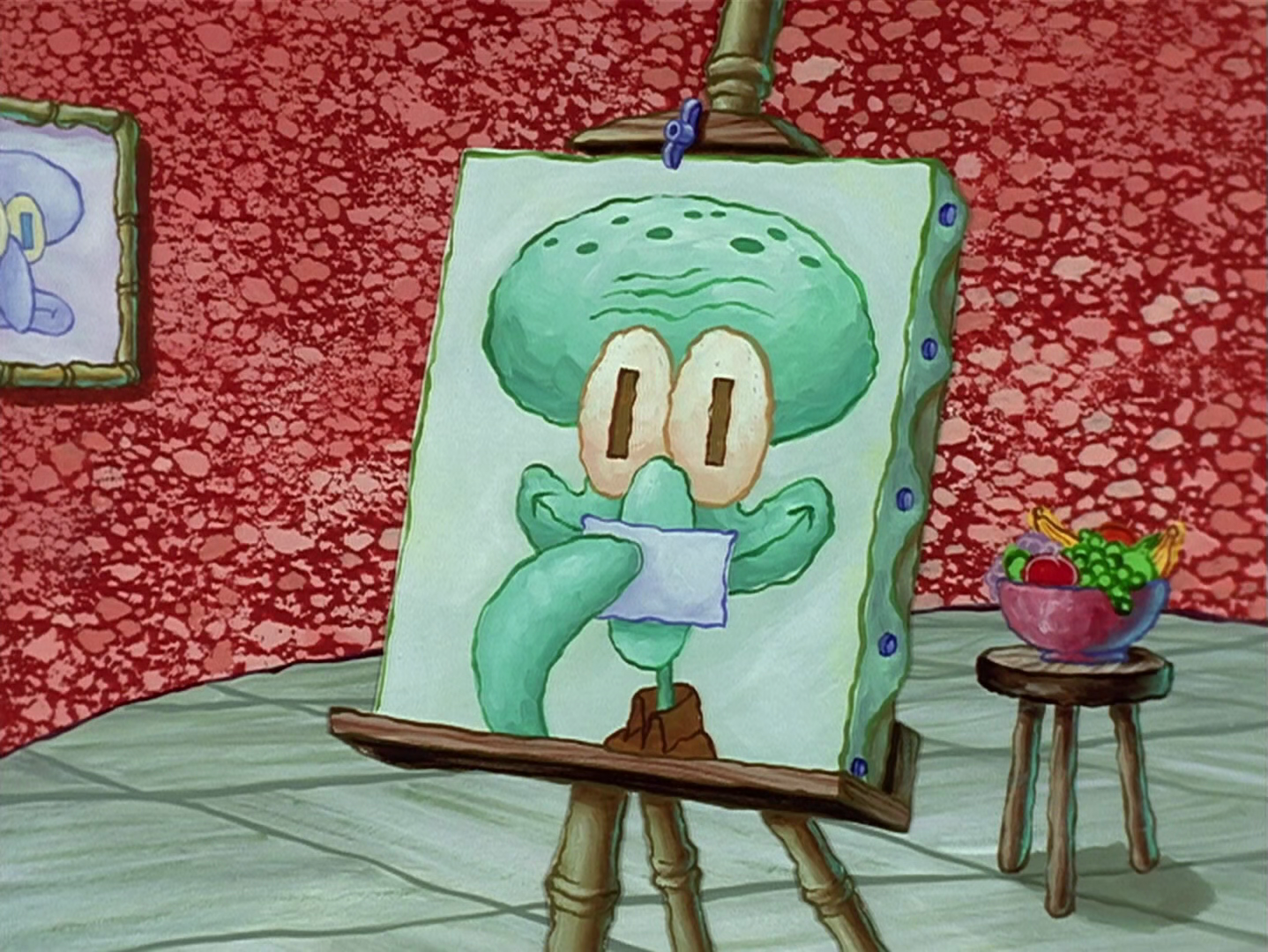
Then the bit changes. Squidward stops avoiding SpongeBob, but starts actively showing off what he can do with his own stuff—his ball-and-paddle toy, his new shell car, his ventriloquist dummy, and finally his clarinet. When he tells jokes with the dummy, it takes a crack at him (“Hey! Little Squidward! What's gray and ugly and has six arms?” “I don't know, but have you looked in the mirror lately?”), and Squidward reacts as if it really hurt his feelings.
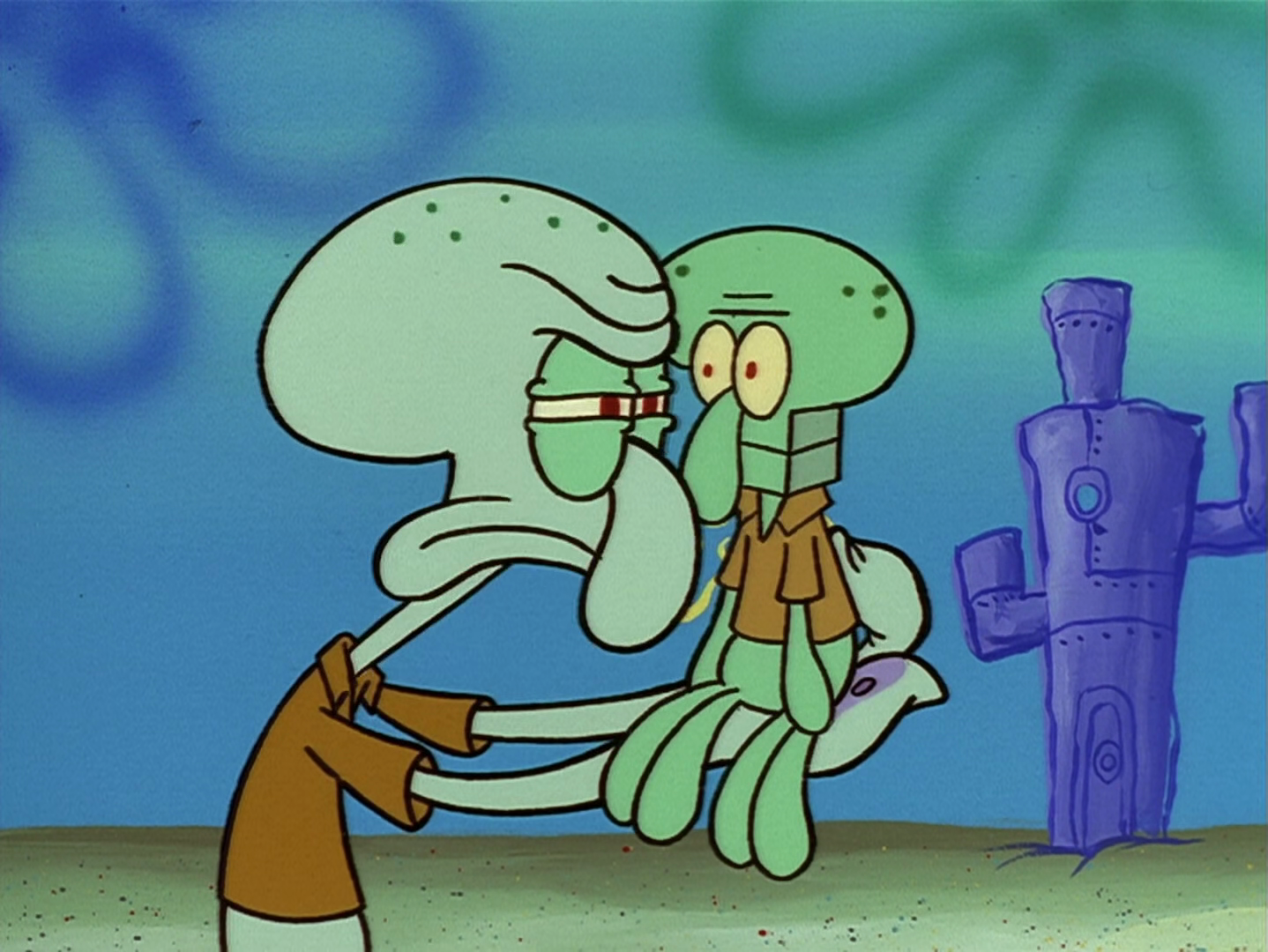 Is it possible for Squidward to have spoken through the dummy without realizing what he was saying? Apparently. Anyway, SpongeBob tells a joke and a crowd of anonymous fish appear JUST to laugh and vanish. The last straw is when SpongeBob plays better clarinet with the paper than Squidward can: clarinet is the one last thing Squidward can do that makes him feel special, and SpongeBob takes away even that power.
Is it possible for Squidward to have spoken through the dummy without realizing what he was saying? Apparently. Anyway, SpongeBob tells a joke and a crowd of anonymous fish appear JUST to laugh and vanish. The last straw is when SpongeBob plays better clarinet with the paper than Squidward can: clarinet is the one last thing Squidward can do that makes him feel special, and SpongeBob takes away even that power.
We saw two moments when Squidward reveals his true thoughts through art that he makes accidentally—painting the bowl of fruit, and telling jokes with a dummy. This seems to be a thesis of the show, that real meaning comes out unconsciously, and real art comes out accidentally. I'll have a lot more to say about Squidward's self-portraits in a later post.
Squidward ends up with nothing, and SpongeBob with everything. When Squidward plays with the paper, it doesn't work. The lesson is clearly that it isn't the paper that's good at things: it's SpongeBob who's good and Squidward who's bad, forever.
I suppose you could read this as an allegory about the folly of possessions, but it would have to be a very hateful one: “Why can't you just MAKE things fun? What's WRONG with you?”